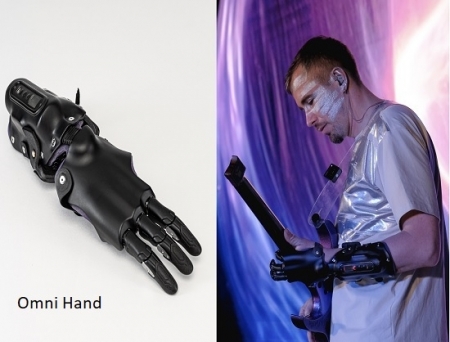Motorica Unveils World's First Bionic Hand Prosthesis with Optical Myography Sensors

Motorica, a global MedTech company specialising in assistive technologies and medical cybernetics, has unveiled Omni Hand, the world’s first bionic hand prosthesis equipped with optical myography (OMG) sensors.
The company describes the launch as a major leap forward in human–technology interaction and intuitive prosthetic control.
Unlike traditional muscle-signal prosthetics, the Omni Hand uses optical sensors to capture minute changes in tissue light transmittance caused by the movement of muscles and tendons. These subtle variations are interpreted in real time, allowing the prosthesis to translate even the smallest impulses into natural, precise motion.
This breakthrough extends the benefits of advanced prosthetics to individuals with limited muscle activity, such as those recovering from electrical injuries, frostbite or trauma, making intuitive and responsive control accessible to a wider spectrum of users.
“Omni Hand represents a new level of human-technology interaction. It doesn’t just respond to movement, it understands the user’s intent. This is a step toward truly natural control of bionic prosthetics,” said Andrei Davidiuk, CEO of Motorica.
The prosthesis can recognise a range of phantom gestures — movements the brain imagines making with the missing hand, such as clenching a fist, making a pinch, or pointing. The Omni Hand can recognise and execute up to six individual gestures without the need to switch modes, ensuring fast, effortless and adaptive control.
Powered by an advanced user decision support system, the technology continuously learns from each interaction, adapting to the individual’s control patterns and improving precision over time, effectively enabling the prosthesis to evolve alongside the user.
While optical sensing in prosthetics has long remained within the realm of research, Cyber Motorica has become the first company to translate this breakthrough into real-world use.
Following a successful pilot rollout, with the first eight users already integrating the Omni Hand into their daily lives, the company is now preparing for mass production in 2026, aiming to make advanced and intuitive prosthetic control available globally.
Andrei Davidiuk, CEO of Motorica Assistive technologies and medical cybernetics MedTech company Motorica Optical myography (OMG) sensors World’s First Bionic Hand Prosthesis
Last news about this category

We use our own and third party cookies to produce statistical information and show you personalized advertising by analyzing your browsing, according to our COOKIES POLICY. If you continue visiting our Site, you accept its use.
More information: Privacy Policy















